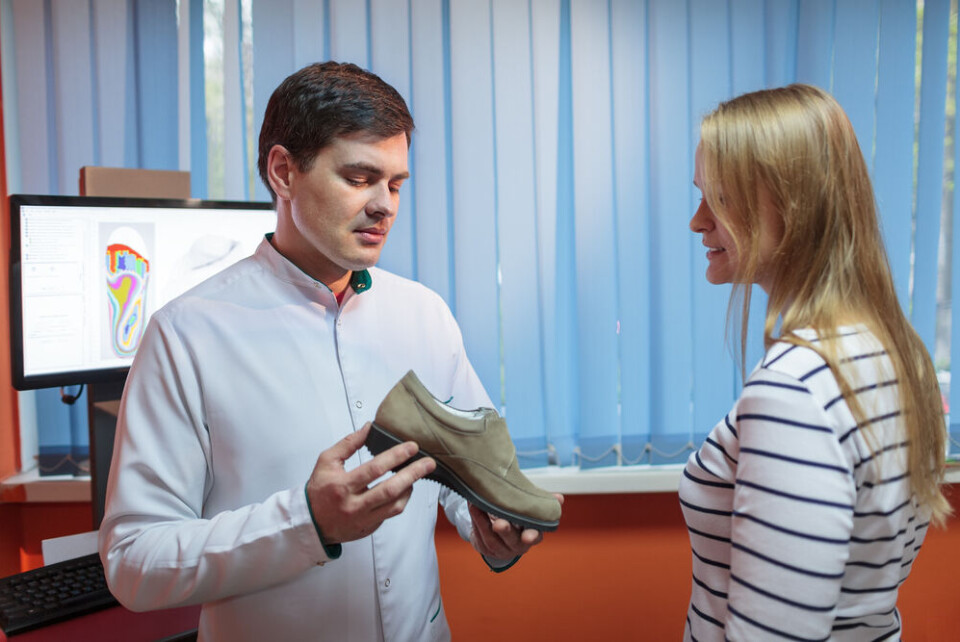-
Home insurance increases expected in France after floods
Compensation costs for the recent storms and flooding across the west and south-west is estimated to be in the billions of euros
-
Can you vote by proxy in French elections?
French and EU citizens are eligible to vote in municipal elections
-
What are penalties for not conforming with new septic tank request?
Some financial aid is available for homeowners needing to install new tanks
Does France reimburse in full the costs of orthopaedic shoes?
We look into the rules around these custom-made shoes

Reader question: What reimbursement does France give for orthopaedic shoes and what documents do you need to present when buying the shoes? Are they covered under France’s Affection de Longue Durée system?
Orthopaedic shoes are covered by the state (Assurance Maladie via your carte Vitale) up to a certain set amount (see below).
Additionally, if a patient needs the shoes because of a long-term illness, known as an Affection de Longue Durée (ALD), such as diabetes, then it is possible that 100% of the cost will be covered up to this pre-set amount.
Types of shoes
It is first worth mentioning the different types of medical shoes that are available in France.
Aside from orthopaedic shoes (chaussures orthopédiques), which are custom made to fit a patient, there are also mass-produced ‘therapeutic shoes’.
These latter types are divided into two categories: temporary-use and long-term therapeutic shoes.
In French, these are called chaussures thérapeutiques à usage temporaire (CHUT) and chaussures thérapeutiques à usage prolongé (CHUP)
These shoes are covered by the state up to 60% of the cost of the government-set reimbursement rate (€31.49 for shoes for temporary conditions, or €71.65 for shoes for ‘prolonged use’), on presentation of a prescription from a specialist in, for example, diabetes, orthopaedics, rheumatology, geriatrics, etc.
Reimbursement of orthopaedic shoes
Like standardised therapeutic shoes, the cost of orthopaedic shoes is also covered up to 60% of the pre-set base cost.
The patient’s condition must warrant the extra costs and they need a prescription from a specialist (diabetes, orthopaedics, rheumatology, geriatrics, etc.) for the costs to be covered.
They must also obtain a prior agreement for the state reimbursement using Cerfa N° 50561#03 / N°12042*02. Normally your specialist doctor will organise this when prescribing you with the orthopaedic shoes.
Note that as you need to provide proof of a prescription, you cannot buy orthopaedic shoes online. Your specialist doctor will most likely tell you where you can buy the shoes from or even organise it for you.
Over-18s in France can get a new pair of orthopaedic shoes, with a part covered by the state, once a year, while under-18s are entitled to two pairs a year – one pair every six months.
If you have an ALD that means that you need orthopaedic shoes, the state health insurance may cover up to 100% of the costs up to the set base rate – see with your specialist.
Base costs
French healthcare treatment and apparatus are reimbursed based on a standard cost amount set by the state. The state then reimburses up to a percentage amount of this dependent on various factors.
The rules on orthopaedic shoes say providers should charge the regulated rate for them, unless you opt for extra, non-standard, levels of comfort.
For orthopaedic shoes, there are two different amounts based on two categories:
Classe A, which covers all foot problems related to excessive size or unevenness that make it impossible to wear standard orthopaedic / therapeutic shoes
Classe B, which covers illnesses that have impacted the feet, such as diabetes, ulcers, other deformities, etc.
Your specialist will tell you which category you fall into.
For Classe A shoes, the healthcare covers 60% of the costs up to €735.04, and for Classe B it is 60% up to €808.94
This means that if your Classe A shoes cost €717.11 the state will cover 60%, equal to €430.27. If you go for a special model that costs more you will also be out of pocket for the additional cost.
Reimbursement by mutuelles
Most people in France have a top-up health insurance policy, commonly called a mutuelle. These private policies will often cover the remaining percentage up to the full base rate or more, ie. the remaining 40% of costs. You should check your policy to make sure that this is the case.
Read more:Complementary health insurance in France: what it is and how it works
Additionally, most orthopaedic shoe-makers offer tiers payant, meaning you do not need to pay the fees that are covered by state medical insurance up front if you have a carte Vitale.
Related articles
Phone app version of France’s carte Vitale to launch in 2023
Does France’s ‘100% Santé’ scheme cover glasses without a mutuelle?
Does French health insurance cover nicotine replacement treatments?
























